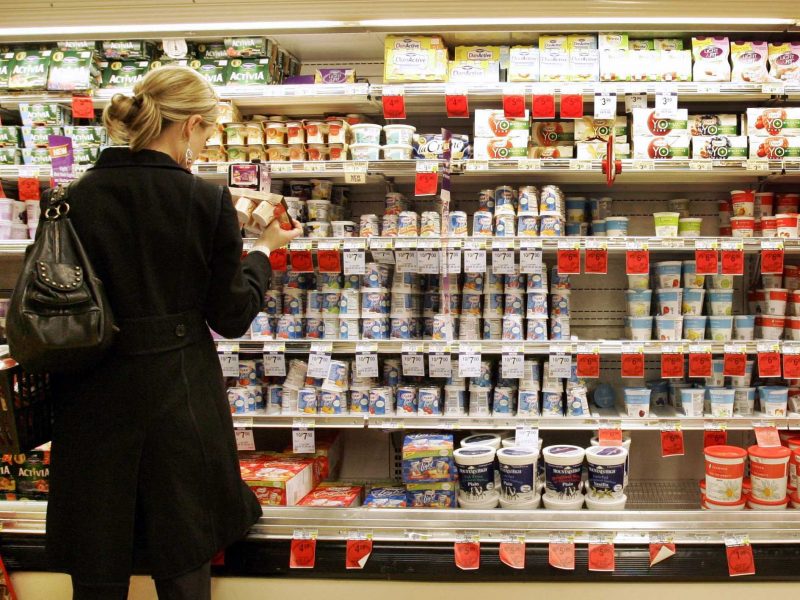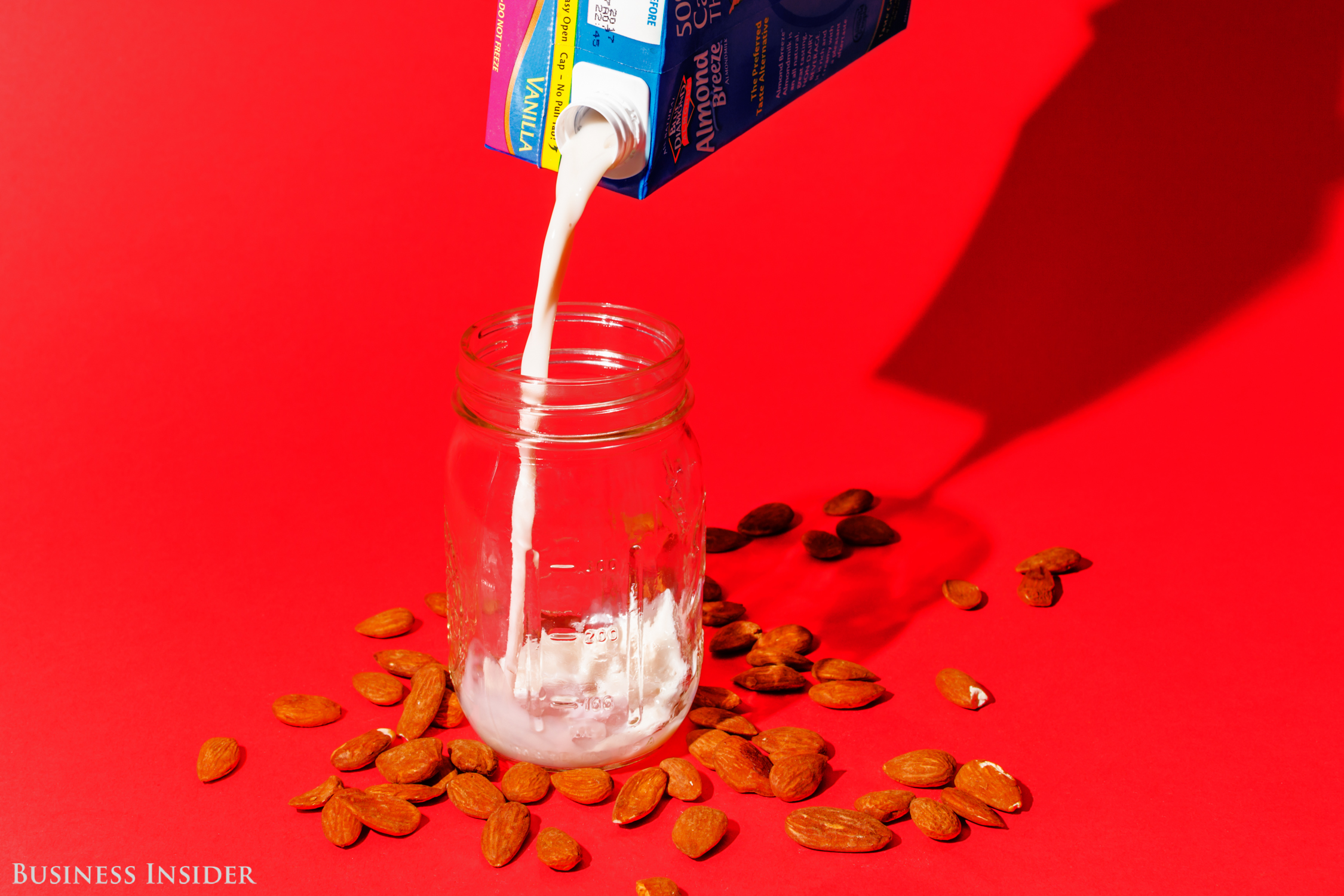Is soy milk or almond milk actually milk? How about cheese made from tapioca and coconut oil?
These are the kinds of questions that might be debated before Congress, thanks to the Dairy Pride Act.
Introduced in January, the bill aims to impose FDA labeling standards on dairy products. If passed, it would mean that companies making plant-based alternatives to dairy-based foods couldn’t call their products milk, cheese, or yogurt, since they do not come from hoofed mammals.
The Dairy Pride Act, introduced by Representative Peter Welch of Vermont and Senator Tammy Baldwin of Wisconsin (a state known for its cheese), is currently being reviewed by the Senate Committee on Health, Education, Labor, and Pensions. It reads:
"Given the proliferation of plant-based products in the marketplace that are mislabeled as milk despite the standard of identity defined for this substance, enforcement by the FDA against these practices should be improved to avoid misleading consumers."
The FDA officially defines milk as "the lacteal secretion, practically free from colostrum, obtained by the complete milking of one or more healthy cows," but that standard is not actively enforced when it comes to labeling.
The Dairy Pride Act argues that labeling plant-based products as "milk" could be misleading to consumers, since those products do not contain the same nutritional content as real dairy. Critics of the Dairy Pride Act, however, say that shoppers know exactly what they're buying if they pick up, say, a carton of Silk soy milk.
"Our consumer is passionately motivated by fact that they read and understand nutrition labels - they are very careful what they are putting in their shopping basket. There's no confusion there," Daiya Foods CEO Terry Tierney tells Business Insider. His company produces cheese and yogurts made primarily of tapioca, safflower oil, coconut oil, and inactive yeast.
Tierney believes that plant-based milks and cheese are just another segment of the dairy industry. Milk, he adds, should be defined by how it's used by consumers - since people can and drink and cook with almond or cashew milk the same way you would with cow's milk, so they should all be considered the same thing.
The Dairy Pride Act is "a solution looking for a problem," Tierney says.
But Blake Waltrip, the CEO of A2 Milk, worries that grocery shoppers might assume that non-dairy milks are nutritionally equivalent to cow's milk. Waltrip's company produces a milk that uses a protein called A2 (though most milks have the A1 protein). He says the health benefits of plant-based milks don't match those of regular milk, which has essential nutrients like calcium, vitamin D, and potassium. (Some brands of soy and almond milk are fortified with these nutrients, however.)
"There is a definition of milk. It's not milk if it comes from a plant, nut, seed, or anything like that," he tells BI.

On March 2, a nonprofit that advocates for plant-based foods, called the Good Food Institute (GFI), filed an FDA petition that argues labeling beverages "almond milk" and "soy milk" is a free speech issue.
"If FDA (or Congress) were to heed such calls and target new (and old) non-dairy alternative products for selective enforcement, it would violate the First Amendment rights of the producers of these products to label and describe their products in a truthful and clear manner consistent with consumer expectations," the petition reads.
Plant-based dairy alternatives have grown into a $1.4 billion industry, while the consumption of dairy milk declined 13% from 2011 to 2015 . Many people consider those plant-based products to be healthier, since many are lower in calories and fat than cow's milk. Others purchase them because they are lactose-intolerant, vegan, or have a dairy allergy.
In recent years, the dairy industry has come under fire regarding animal welfare and environmental impacts. (Dairy farming consumes more land and water than most plant-based food production.) The production of almond milk, though, also has negative impacts on the planet. California grows the majority of the world's almonds, but they require a great deal of water to produce (a problem in an area prone to severe drought). It takes an estimated 15.3 gallons of water to produce 16 almonds, according to The New York Times.
Several recent lawsuits about food labeling have made similar arguments to those in the Dairy Pride Act. In 2015, a Federal District Court judge in San Francisco dismissed a class-action lawsuit against Trader Joe's. In the suit, a group of consumers said the grocery chain's almond, coconut, and soy milk labeling led them to mistake the products for cow's milk.
In 2009, a woman sued the Quaker Oats Company, claiming that she was misled that Cap'n Crunch's Crunch Berries contained real fruit. (The case was dismissed, as was an earlier one regarding Fruit Loops, as reported by Consumerist.)
In his decision in the dairy case, former District Court judge Samuel Conti wrote:
"It is simply implausible that a reasonable consumer would mistake a product like soy milk or almond milk with dairy milk from a cow. The first words in the products names should be obvious enough to even the least discerning of consumers."

